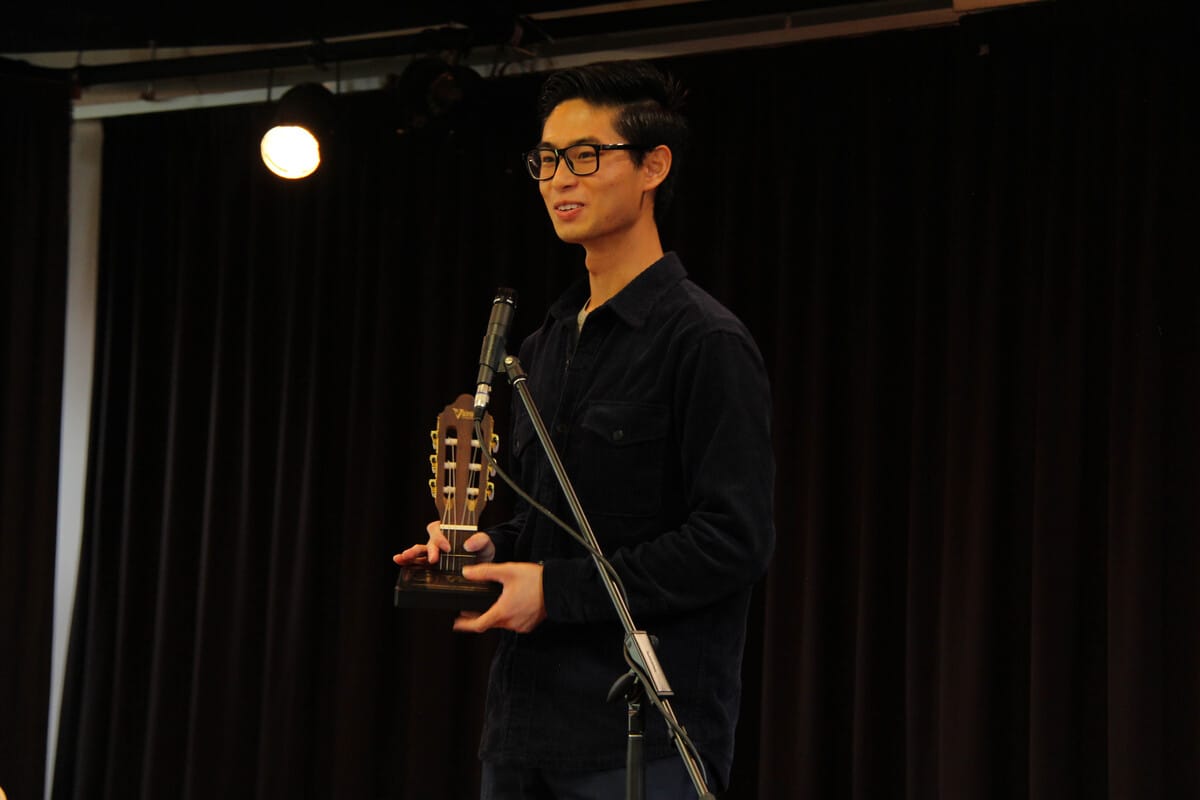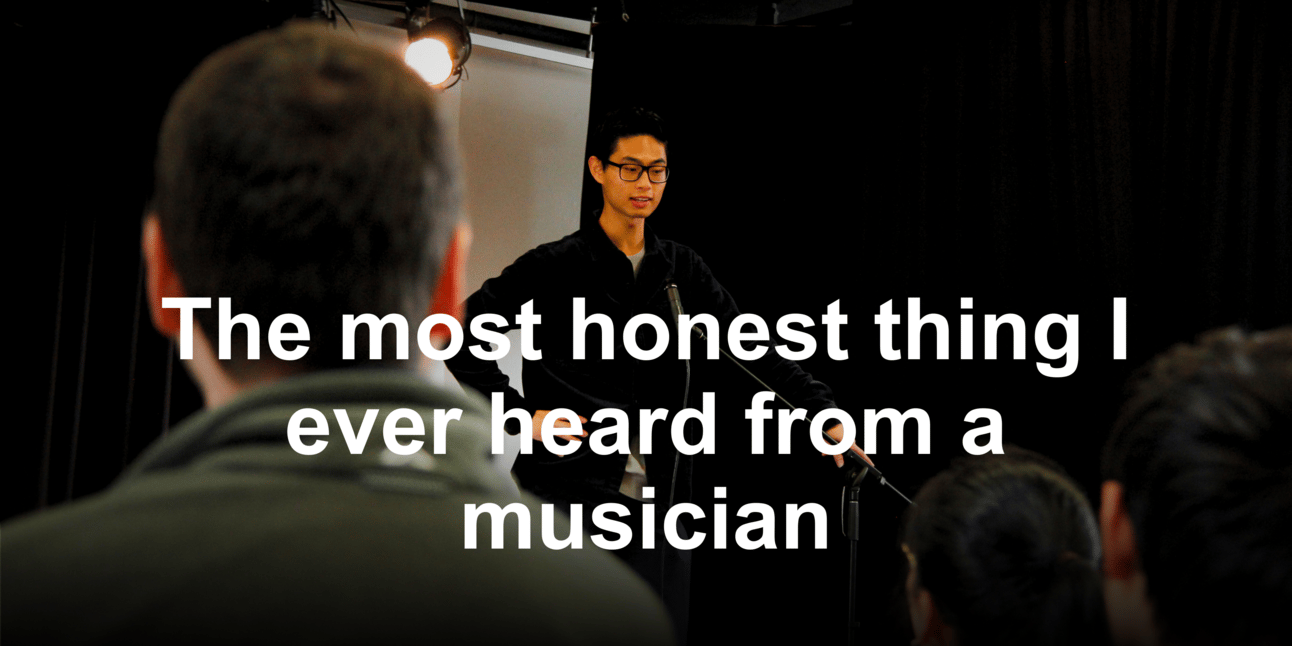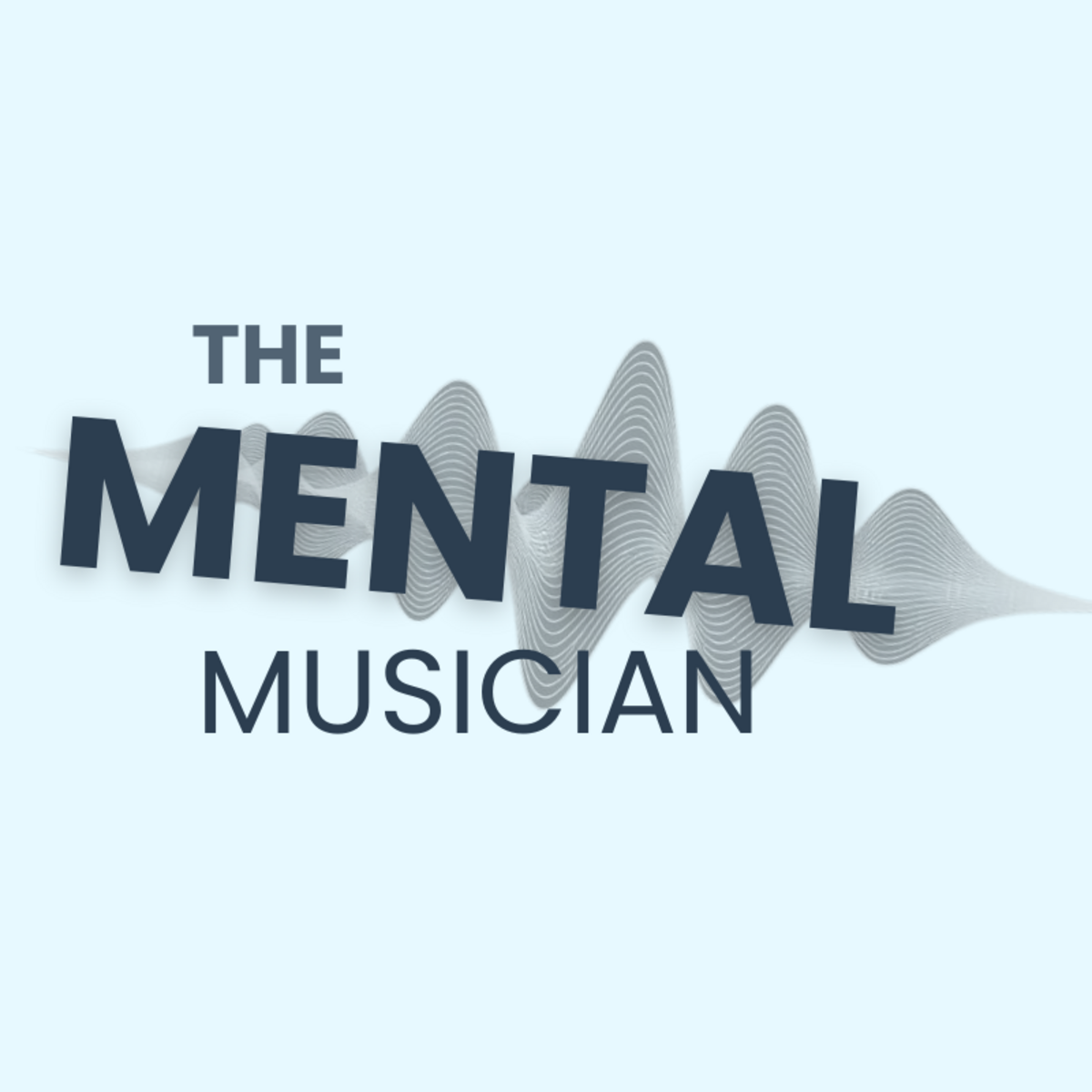When I started my jazz degree at the Sydney Conservatorium of Music in 2021, I didn’t expect it to be so lonely.
At uni, music talk was constant. Even outside of class, it never stopped.
I’d try to take a breather during lunch, and someone would sit next to me and start talking about 17/8 time signatures like it was the most natural thing in the world.
I learned 150 ways to alter a dominant scale, 1,500 ways to modulate between Mixolydian and Dorian, and how to count rhythms in time signatures that didn’t even exist yet.
But when I asked about the real stuff —
“How do you make a living as a musician?”
“What do you do to take care of your mental health”
“How do you keep going when no gigs come in?”
The response was always the same:
“Just practise. The gigs will come.”
Classic.

Actually this was me…claiming to be practising…
Meanwhile, I was having panic attacks on the train.
Outside the school walls, venues were shutting down. Gigs were disappearing. The streaming economy was chewing up musicians and spitting them out with nothing to show for it.
People like to blame it all on COVID, but Sydney’s music scene had already been bleeding out for years. By 2014, venues were disappearing. Gigs were underpaid or unpaid. Musicians were burning out from chasing bar gigs where they played for a handful of drunk patrons — sometimes literally for peanuts.
But at uni?
“Just keep practising.”
Sure. Practise till your fingers bleed. Practise while the music industry collapses under your feet. Practise until... what?
Everyone said it.
Except for one person.
My ensemble teacher.
This is a story about the only musician I knew who openly admitted he had panic attacks.
My ensemble teacher was a man who never shied away from being himself.
He showed up with orange hair, razor-sharp eyebrows, and loud shirts that made you squint. He looked like a Bowie impersonator and spoke like a guy who had seen some sh*t and wasn’t afraid to talk about it.
Think if a Kazakh warrior and the lion from a streets paddle pop ice cream had a baby together.

If you’re Australian, you’ll know how nostalgic this is!
While other lecturers hid behind stoicism and sheet music, he walked into class and said things like:
“Oh my god, am I glad to see you kids — I just had a panic attack!”
“I couldn’t sleep till 4am. I’m exhausted. But I’ve been looking forward to this class all day.”
“I’ve been feeling pretty down lately. But jamming with you — it’s made me feel human again.”
Sometimes, after rehearsals, he’d pause by the door and say:
“I’ve been feeling pretty down lately. But seeing you young cats and jamming with you — it’s given me energy for the rest of the day.”
I’ll be honest — the first time he said this, I didn’t know what to do with it.
No one else spoke like that.
No one was allowed to speak like that.
This was a 60-year-old man who had spent his life in the music world — a world where men didn’t talk about emotions. Where the show always came first.
If your legs were broken and your wife was giving birth to triplets — you still turned up and played the gig.
But he didn’t play by that rule.
He told us he grew up feeling like an outsider.
He battled depression, anxiety, bipolar disorder.
He tried opening up to family — they didn’t always understand.
And still, every week, he walked into that classroom and chose to show up — not just as a musician, but as a human.
He brought his full self into that room.
In doing so, gave us permission to do the same.
There’s a moment I’ll never forget.
It was the day after Sydney’s second lockdown was announced in 2021.
I’d had a panic attack that morning — couldn’t breathe, couldn’t think — and I decided to call him. I asked if he was really okay sharing so openly with us.
He didn’t hesitate.
He told me about his 35-year battle with anxiety. About the imposter syndrome that never left. About feeling like the odd one out — even among other musicians.
While other lecturers had degrees, PhDs, perfect grades — he didn’t take a straight path.
After high school, he became a handyman.
One week an electrician. The next a plumber.
Doing whatever he could to get by.
And when COVID hit?
While others were spiralling — he found peace.
He cleaned his garden. Painted his house. Walked his dog. Spent time with his wife and grandkids.
He said: “When I go home, I’m not a musician. I’m a husband, a father, a grandfather. And when I come to class, I remind myself I’m all those things first.”
He quoted Herbie Hancock’s famous line:
“So now if someone asks what are you? I don’t say I’m a musician. I say what I am is a human being. What I do is play music.”
He wasn’t just saying it — he lived it.
I’ve never forgotten that

One of the most important quotes I’ve ever heard in my life.
Before that conversation, I didn’t know I was allowed to be honest.
When I opened up, most people either told me to practise more or gave me that pity look — the one that says “you’re probably not cut out for this.”
Even one of my long-time mentors at uni shrugged and said:
“I dunno…you’ve got to find a way.”
As if my panic was a personal failure.
As if my pain made me a bad musician.
But my ensemble teacher?
He made me feel like a person again.
Maybe that’s why he wore those wild shirts — not to hide, but to invite something in.
To say: I’m here. You can be too.
Since that day, I made a promise:
To be honest about what I feel.
Even when it’s hard.
Especially when it’s hard.
I still catch myself bottling things up.
Still hear that voice in my head that says,
“Don’t show weakness. Don’t let them see you crack.”
But I’ve learned that healing doesn’t begin until the truth gets some air.
And the truth is:
In music, we’re told to express ourselves through our instruments.
But sometimes, that’s not enough.
Sometimes you need to speak, out loud.
Even if your voice shakes.
Even if it’s messy.
Even if you don’t know how to finish the sentence.
Most students walked through that school like ghosts —
Showing up. Performing. Disappearing.
Their life stories left at the door.
But not him.
He brought his whole story in with him.
The pain. The joy. The mess. The music.
And in doing so, he gave us permission to bring ours too.
That’s why I write this newsletter.
I don’t want to hide behind a song.
Or call myself a “musician” just to justify my existence.
I want to be human first.
And I want you to feel safe doing the same.
So if you’re reading this — and you feel like no one else gets it —
Know that you’re not alone.
You can tell your story here.
I’ll read it. I’ll hold it with you.
That’s what this space is for.
We need more musicians who feel.
We need more people who speak.

P.S. I made something that might help you get started.
It’s a free weekly self-reflection tool — just 10-15 minutes a day on Notion.
You can use it to check in with your mental health, track where you're at in your music career, or just give your mind a break from all the noise.
No pressure. No deadlines.
Just a quiet space to breathe and be honest with yourself.
👉 Click here to grab the free reflection guide — and use it whenever you need.
You’re not alone in this.
And you don’t have to figure it all out at once.
So please don’t hesitate to reach out.
As much as I would love for you to be able to reach out to a friend, family member or fellow musician first, if you’re unsure about doing so, you can reach out to me.
Send me a DM on instagram - https://www.instagram.com/brianzhangmusic/
Send me a message on Linkedin - https://www.linkedin.com/in/brian-zhang-a14806146/
Or you can leave a comment on this newsletter. (Just add a 5 star rating whilst you’re at it 😜)
I hope you find the strength to share your story.
If you can't do it with others, just know that you can share it here, with me, and the small community of musicians here who are doing the same.


